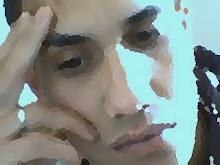One of the markers of a society is the different roles that members play. These roles essentially translate into careers or professions. Choosing a profession comes easy for some people but for others the decision poses a challenge and they need help. Through the help of career coaching experts, people of varying ages are able to find and embark on their desired professional paths.
When people think of profession guidance they automatically think of it as something that young people need. This is true to some extent. For young people, that period of time in which they undergo the preparation for entering the world of work is crucial. Career coaches, through the application of their expert knowledge are able to provide the guidance needed to ensure that teens and young adults have a clear idea and vision of what they should do with their future professional lives.
It may not seem to be so on the surface, but many adults also need this type of help. Many times adults who are already engaged in a profession feel the need for a change. This is where a career coach becomes important. This coach can assist the individual to properly asses the current situation and make informed decisions about their professional future.
Sometimes the help that adults need is related to their current professions. Someone who, for instance, is stuck at a particular point in a certain field and have the desire to advance may need professional direction. The coach, in this situation may assist the client in deciding on the actions that need to be taken in order to access a promotion or transition into another department or area within the field.
The training given to career coaches is designed to ensure that they are adequately equipped to meet their clients' needs. This is why psychology and sociology based courses feature heavily in these training programs. Coaches must be able to assess characters and make evaluations based on the emotional and psychological status of their clients.
The psychological aspect of a coach's task is very important. The coach must be able to make evaluations on the emotional and metal status of each client before directing them on any path. They must ensure that their clients are not just mentally prepared but also psychologically capable of handling the decisions being made about their careers.
In addition to professional coaches, modern society features the traditional or informal ones. These are the people who often already play a guiding role in the lives of others such as teachers, mentors and parents. In some intimate relationships, spouses fulfill this role to each other. There are however, more complex cases which require the intervention of a trained professional.
Clearly the need for guidance in profession based matters extend beyond age and geographical boundaries. The coaches who fulfill this role have one part of the solution to the profession related issues that many people face. The satisfactory resolution of these issues translates into better performing and happier professionals and also a better society.
When people think of profession guidance they automatically think of it as something that young people need. This is true to some extent. For young people, that period of time in which they undergo the preparation for entering the world of work is crucial. Career coaches, through the application of their expert knowledge are able to provide the guidance needed to ensure that teens and young adults have a clear idea and vision of what they should do with their future professional lives.
It may not seem to be so on the surface, but many adults also need this type of help. Many times adults who are already engaged in a profession feel the need for a change. This is where a career coach becomes important. This coach can assist the individual to properly asses the current situation and make informed decisions about their professional future.
Sometimes the help that adults need is related to their current professions. Someone who, for instance, is stuck at a particular point in a certain field and have the desire to advance may need professional direction. The coach, in this situation may assist the client in deciding on the actions that need to be taken in order to access a promotion or transition into another department or area within the field.
The training given to career coaches is designed to ensure that they are adequately equipped to meet their clients' needs. This is why psychology and sociology based courses feature heavily in these training programs. Coaches must be able to assess characters and make evaluations based on the emotional and psychological status of their clients.
The psychological aspect of a coach's task is very important. The coach must be able to make evaluations on the emotional and metal status of each client before directing them on any path. They must ensure that their clients are not just mentally prepared but also psychologically capable of handling the decisions being made about their careers.
In addition to professional coaches, modern society features the traditional or informal ones. These are the people who often already play a guiding role in the lives of others such as teachers, mentors and parents. In some intimate relationships, spouses fulfill this role to each other. There are however, more complex cases which require the intervention of a trained professional.
Clearly the need for guidance in profession based matters extend beyond age and geographical boundaries. The coaches who fulfill this role have one part of the solution to the profession related issues that many people face. The satisfactory resolution of these issues translates into better performing and happier professionals and also a better society.


